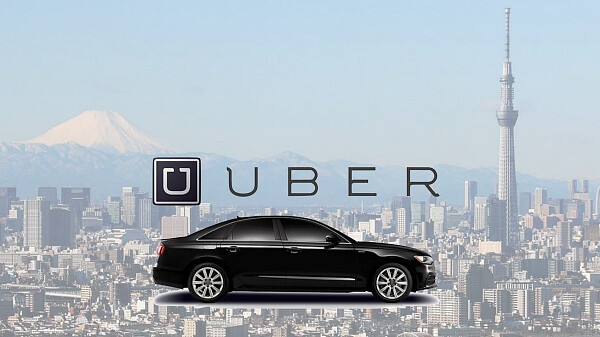
San Francisco, CA – As Uber gears up for its first-quarter earnings report, the ride-hailing and delivery giant is strategically expanding its global footprint through significant partnerships in Turkey and China. This aggressive expansion comes at a crucial juncture, as the company navigates potential headwinds including concerns about decreased consumer spending possibly stemming from President Donald Trump's tariff policies and the intensifying competition in the autonomous vehicle (AV) sector, spearheaded by companies like Tesla. Uber's recent moves signal a clear intent to tap into burgeoning international markets and solidify its position in the evolving landscape of mobility and delivery services.
In a bold move to penetrate the Turkish food delivery market, Uber announced its acquisition of an 85% stake in Trendyol Go, a prominent Istanbul-based online platform for food and grocery delivery, for a substantial $700 million in cash. Trendyol Go is the delivery arm of Trendyol Group, Turkey's leading e-commerce platform with significant backing from Alibaba. This acquisition provides Uber with an immediate and significant foothold in a rapidly growing market. Trendyol Go's impressive metrics, including over 200 million orders processed in the past year and a gross transaction value of $2 billion (a remarkable 50% year-over-year increase), highlight the immense potential of this market. With a network encompassing over 90,000 restaurants and 19,000 delivery personnel across Turkey, Trendyol Go presents Uber with a ready-made infrastructure to scale its Uber Eats operations rapidly. The deal, expected to close in the latter half of the year, underscores Uber's commitment to investing its core Uber Eats expertise and technology into the Turkish market over the coming years. While Uber has been operating its ride-hailing services in Turkey, this acquisition marks a significant expansion into the lucrative food delivery segment, directly challenging existing players and capitalizing on the increasing demand for online convenience.
Simultaneously, Uber has been strategically forging alliances in the autonomous vehicle space, particularly in China. The company announced its third partnership with a Chinese AV firm, Pony AI, a Guangzhou-based entity that recently went public on Nasdaq with a valuation of $5.25 billion. This collaboration aims to introduce robotaxi services through the Uber platform in key Middle Eastern markets by the end of the current year. This move signifies Uber's increasing reliance on external partnerships to accelerate its AV deployment, particularly in regions where regulatory landscapes and technological advancements differ significantly from the United States.
Furthering its ambitions in the AV sector, Uber also unveiled strategic collaboration plans with two other prominent Chinese autonomous driving companies: Momenta and WeRide. The partnership with Momenta targets the European market, with plans to launch robotaxi services as early as 2026. Meanwhile, the collaboration with WeRide has a broader geographical scope, aiming to expand robotaxi services to 15 cities across the Middle East and Europe over the next five years. Notably, WeRide has already commenced commercial robotaxi operations in Abu Dhabi, demonstrating the growing maturity and acceptance of AV technology in the Middle East.
These recent partnerships with Chinese AV companies mark a shift in Uber's strategy. Previously, its autonomous driving collaborations, involving over 15 entities, including prominent US-based players like Waymo and May Mobility, were primarily focused on domestic development and deployment. The engagement with Chinese firms underscores Uber's recognition of the rapid advancements and unique technological expertise emerging from the Chinese AV ecosystem. It also reflects a pragmatic approach to navigating the complex global regulatory landscape for autonomous vehicles, leveraging the strengths and local knowledge of its international partners.
These global expansion efforts come at a time of potential economic uncertainty, with concerns looming over the impact of potential tariff policies under a new administration in the United States. Such policies could lead to decreased consumer spending, indirectly affecting demand for ride-hailing and delivery services. Moreover, the increasing foray of competitors, including electric vehicle giant Tesla, into the robotaxi market intensifies the competitive pressure on Uber's future mobility plans. By diversifying its revenue streams and expanding its geographical reach, Uber appears to be proactively mitigating these risks and positioning itself for sustained growth in the long term. The strategic acquisitions and partnerships in high-growth markets like Turkey and the Middle East offer a hedge against potential domestic economic headwinds and the escalating competition in the AV sector.
In its operations within South Korea, Uber continues to operate under the 'Uber Taxi' brand. The company has recently introduced initiatives aimed at attracting and retaining users, such as the 'Nolto (Play Saturday) Promotion,' offering a significant discount on Saturdays, and the 'General Taxi XL' service, catering to passengers requiring larger vehicles for luggage or group travel. These localized strategies demonstrate Uber's commitment to adapting to specific market needs and preferences, even as it pursues broader global expansion.
Overall, Uber's recent strategic moves in Turkey and China highlight a proactive and adaptive approach to navigating a complex and evolving global landscape. By capitalizing on the growth potential of international markets and forging key partnerships in the autonomous vehicle sector, Uber aims to solidify its position as a leading global platform for mobility and delivery services, mitigating risks associated with economic uncertainties and intensifying competition. The success of these ventures will be crucial in shaping Uber's future trajectory and its ability to maintain its dominance in the rapidly transforming transportation and logistics industries.
[Copyright (c) Global Economic Times. All Rights Reserved.]






























